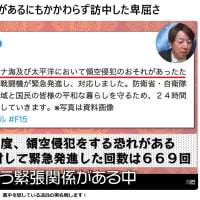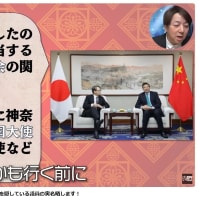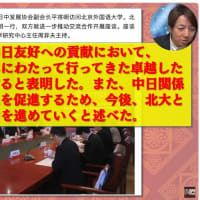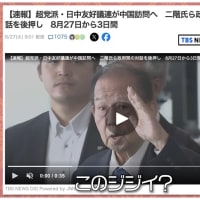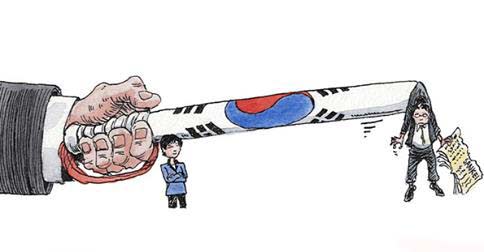
The Economist(10月18日)のマンガ
産経新聞ソウル支局長に関する韓国「ハンキョレ」と英国「The Economisut 」の記事の読み比べ。海外の反応は「ハンキョレ」が予想したとおりになりつつある。
産経ソウル支局長告発で日本極右に完敗した韓国極右
the hankyoreh(2014/08/23)から抜粋
朴槿恵大統領を愛するある市民団体による産経新聞の告発は、外信の嘲笑の種となっている。外信はこの問題を、大韓民国大統領の名誉の問題ではなく、言論の自由の問題と見ている。
大統領は市民だ。大統領個人は保護されるべきだ。大統領も友人に会い、酒を飲み、恋をして、旅行をして、セックスをして、他の人と同じように全てのことをすることができる。大統領が一かけらの胸を痛めるロマンスを落としたところで、後ろ指を指されることもない。聖者ではない大統領に、道徳的基準を別に設けて駆りたてることもない。大韓民国憲法は大統領個人の人生を拘束したことはない。大韓民国憲法は、全ての市民の人生を平等に保護せよと命じている。
しかし、大統領という職業になれば話が変わる。市民が作った5年分の臨時職公務員である大統領は、大幅な法的保護に途方もない月給を受け取るだけに、あらゆる締め付けに対して機嫌を伺わなければならない役回りだ。韓国社会がよく手本として例に挙げるアメリカとその大統領も同じだ。
大統領の消えた7時間を追跡して責任があるのなら問うのが正常だ。朴槿恵が名誉を毀損されたとすれば、私たちは294人の命を失った。それがこの事件の本質だ。
大統領にも出退勤時間があり、職場を守らなければならない義務がある。国に何か事件が起きたら、町役場の上層部が席を守らなければならないように、大統領も抜け出すことはできない。市民社会には、大統領が時間通りに出勤しているのか、また勤務時間に仕事をきちんとしているのかなどを当然に知る権利がある。
国を愛して朴槿恵を愛する極右がそれで得たものは何か? 一国の大統領がその程度の極右新聞一つといざこざを起こして、何を得るというのだろうか?
見よ、むしろその告発で朴槿恵は消えかけていた件がぶり返したのみならず、大韓民国という国まで笑いものにさせてしまった。
その告発には、すでに日本は言うまでもなく、アメリカと中国メディアまで飛びついた。外信版の常識から見れば、韓国大統領が関わったこの件を記事にしないソウル特派員はいない。ソウル外信版の動きが尋常ではないという声が、すでにバンコク外信版にまで広がっている。
今後、国内外のメディアが蜂の群れのように押しかける法廷でも大騒動だ。外信版ではこの件を朴槿恵の名誉よりは言論の自由の問題として扱っている。
何もかもバラバラ崩れだした
客船は沈没、ビルや橋は倒壊、地下鉄は衝突、
イベント会場の通気口は崩落・・・・・ ハンギョレ(2014年10月19日)
ハンギョレ(2014年10月19日)
・・・・・・・・・・・・・・・・・・・・・・・・・・・・・・・・・・・・・・・・・・・・・・・・・・・・・・・・・・・・・・・・・・・・・・・・・・・
The Economistの10月18日の記事
英国の経済誌Economistに、「騒々しい民主主義国において権威主義的傾向が復活」とのタイトルで韓国の産経新聞ソウル支局長訴追の話が記事になっている。
韓国の動きを問題視し、今後、メディアの萎縮を生む可能性や、国境なき記者団の調査で韓国のメディアへの監視度がエジプトやタイ並みとなってるこなどを書いている。所詮、韓国は北朝鮮と似た体質の国なのだ。
パク・クネは、“空白の7時間”何していたのか、“セイジ”をしていたのだろう。海外のマスコミが取り上げるようになった、ハンギョレが指摘したように海外のマスコミが取り上げている。裁判になればさらに注目される。パク・クネ何をしていたのか、裁判で明らかにすることができるのか、できなくても、“セイジ”がらみの下ネタ、嘲笑ものである。
以下、The Economistの10月18日の記事
・・・・・・・・・・・・・・・・・・・・・・・・・・・・・・・・・・・・・・・・・・・・・・・・・・・・・・・・・・・・・・・・・・・・・・・・・・・
The Economist
Illiberalism in South Korea
Insult to injury
Authoritarian tendencies resurface in a raucous democracy
Oct 18th 2014 | SEOUL | From the print edition
Timekeeper
http://www.economist.com/news/asia/21625862-authoritarian-tendencies-resurface-raucous-democracy-insult-injury
NOT since 1993 had a Japanese journalist been investigated in South Korea. But this time it was not classified military intelligence that was allegedly divulged—but hearsay. On October 8th prosecutors charged Tatsuya Kato, until recently the Seoul bureau chief of the Sankei Shimbun, a Japanese right-wing daily, with defaming the South Korean president, Park Geun-hye. Mr Kato is currently banned from leaving the country.
The source of the upset is an article which the Sankei published online on August 3rd. It speculated on the whereabouts of Ms Park on the day a ferry sank in April, claiming 304 lives. Many blame the deaths on a botched rescue operation. Rumours have spread that at the time Ms Park was out of contact for seven hours. Citing the Chosun Ilbo, South Korea’s biggest daily, that mentioned but rather ridiculed the gossip, as well as reports circulating among stockbroking houses, Mr Kato suggested she was rumoured to have vanished for a tryst with a divorced man. The president’s office staunchly denies this.
Some Japanese say the case has targeted Mr Kato because the Sankei is the standard-bearer of Japan’s irksome historical revisionism. It has for years campaigned to reverse an apology from Japan over the forcing of Korean women into wartime brothels. Dokdo Saranghoe, a South Korean civic group that defends islets claimed by Japan as South Korean territory, was one of three groups that lodged a complaint about the article on grounds of libel.
The affair will do little to help strained bilateral relations. Few South Koreans have any sympathy for the Sankei, but that is precisely why Mr Kato is “the perfect scapegoat”, says Oh Chang-ik of Citizens’ Solidarity for Human Rights, a liberal lobby in South Korea. He says the case is an attempt to cow South Korea’s domestic press. Prosecutors have already searched the home of a reporter at NewsPro, a South Korean outlet that translates foreign news, including articles from the Sankei.
Defamation lawsuits have been used before by the country’s presidents, conservative and liberal. In 2011 a host on a South Korean podcast that lampooned the then president, Lee Myung-bak, was sentenced to a year in prison for spreading false rumours about him, alleging past involvement in stock fraud. In 2003, when he was president, the late Roh Moo-hyun filed a lawsuit against four South Korean dailies for linking him to dodgy property deals.
To some, this is heavy-handed. South Korea enjoys a thriving civil society and competitive elections. Yet its libel law is strict. Truth is no defence against spending time in prison (punitive damages are unknown in the South Korean system). Instead, the public interest needs to be proved. Both the Sankei and Reporters without Borders, a Paris-based watchdog, say Mr Kato’s article met that standard.
Last month Ms Park said insulting the leader had “crossed the line”. Prosecutors swiftly set up a team to monitor the web for falsehoods or defamations. For Cho Guk of Seoul National University this is a depressing return to tendencies associated with the dictatorship of Ms Park’s late father, Park Chung-hee, a military strongman. Two crimes were notorious then: criticising the leader and spreading false rumours.
The crackdown on rumours has prompted some 1m South Koreans to ditch local chat apps within a week—including KakaoTalk, the country’s biggest—for Telegram, an encrypted service based in Berlin. This week KakaoTalk said it would stop honouring warrants from prosecutors (who have denied they monitor private conversations). Reporters without Borders ranks the level of surveillance of South Korea’s internet as similar to that of Egypt and Thailand. Last year censors deleted or blocked over 80,000 web pages, for pornography or gambling, but North Korean sites, along with those of sympathisers of North Korea, are also blocked under the National Security Law, a cold-war legacy. That law was once abused to silence critics, and it continues to rankle. But now the defamation law has become the government’s tool of choice, says Mr Cho.
Last year the UN’s free-speech envoy said many South Korean suits are filed to punish statements that are true or in the public interest. As the Sankei case rumbles on, South Korean media with reservations about Mr Kato’s harsh treatment may censor themselves. In private, journalists admit that writing anything positive about Japan is almost impossible in the current climate.
President Park says that by insulting her, the likes of Mr Kato insult her nation. Her nation might wonder whether the greater insult was to its hard-won democracy.
From the print edition: Asia











